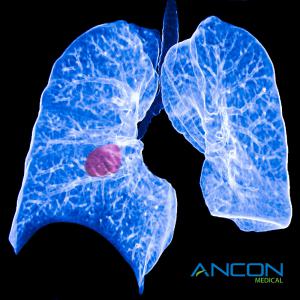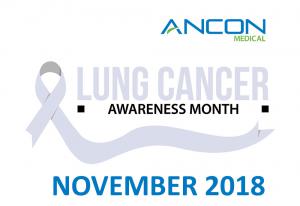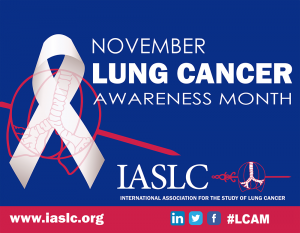New Device Makes Early Lung Cancer Detection Possible
ANCON Medical Seeks Funding for Lung Cancer Screening Technology
ANCON Medical’s NBT device is a much better alternative than CT scans early on and far cheaper too”
BLOOMINGTON, MINNESOTA, UNITED STATES, September 27, 2018 /EINPresswire.com/ -- November will be Lung Cancer Awareness Month and healthcare advocates like the American Lung Association used the event to press for additional research, improved early detection, more effective screening and better treatment. — Wesley Baker - CEO of ANCON Medical
Responding to these needs, one medical device maker has developed a non-invasive screening technology that could alert to the presence of lung cancer early in its development, and at just a fraction of the cost of current methods. ANCON Medical Inc., based in Minnesota’s “Medical Alley,” is seeking funding to finalize and prepare for the production of its Nanoparticle Biomarker Tagging (NBT) device, a revolutionary technology which can detect an array of infectious diseases and viruses simply by checking an individual’s breath.
An important element of lung cancer treatment is early detection and a study in 2014 showed that screening with computed tomography (CT) scans can be a cost-effective while saving lives, showing that screening for lung cancer would cost $81,000 for each year of quality life gained.
“Ancon Medical’s NBT device is a much better alternative than CT scans early on and far cheaper too,” said Wesley Baker, CEO of ANCON Medical. “It can screen a wide range of at-risk individuals, allowing doctors to discover the presence of lung cancer at an early state. For many, once lung cancer is diagnosed, it is too late, as more than half die within one year. NBT has the potential to find lung cancer in its earliest stages, where more than 57 percent have a five-year survival rate.”
With investor funding, the NBT device could be programmed to detect a variety of diseases and viruses, including many types of cancer, tuberculosis and even the Ebola virus.
“The only thing preventing ANCON Medical from further developing its NBT device is financial resources needed” Baker said. “We think once people learn more about the life-saving potential of this remarkable technology, we can find the money to get NBT devices to the doctors who can use it to screen for a whole array of diseases and viruses.”
NBT technology works by detecting “biomarkers”, which are DNA-protein controlled volatile organic compounds (VOCs) metabolites specific to diseases. These VOCs are the “fingerprints” of disease and no technology is as sensitive at finding these biomarkers as NBT. NBT is far more sensitive than current screening methods. Whereas similar technology can require a concentration of thousands of biomarker molecules to detect the presence of a disease or virus, the NBT can detect concentrations as small as a single molecule.
NBT uses technology similar but not identical to ultrafast gas chromatography, which can analyze complex mixture of chemicals. However, instead of requiring a laboratory setting, NBT is portable, versatile and affordable. The current prototype is about the size of a small suitcase and with additional funding, company researchers believe it can be reduced to the size of a toaster. Funding is also needed to confirm the specific biomarkers for lung cancer and other diseases, which researchers can generally find in a few months through specialized testing. Additionally, an NBT device is projected to hit the market at a price of around $39,000, making it an affordable addition for many hospitals, clinics and healthcare facilities.
Cancer is the second leading cause of death in the U.S., behind only heart disease. Lung cancer itself accounts for about 27 percent of all cancer deaths in the U.S., according to the American Cancer Society (ACS). It will kill an estimated 165,000 Americans in 2018. Individuals diagnosed with lung cancer in the early stages can be cured, the ACS reports.
Detecting lung cancer can be a challenge for medical professionals. Standard x-rays are not effective at finding lung cancer tumors in their earliest stages, when doctors have their best opportunity to cure individuals of the disease. And while low-dose CT scans can find lung cancer, these devices also expose individuals to dangerous levels of radiation. Because of the potential side effects, the study recommended CT scan screenings only for a limited target group of those most likely to be exposed to lung cancer -- primarily older, life-long smokers.
NBT screening could look for lung cancer biomarkers in a wider group, including younger individuals exposed to hazardous conditions and those who face dangers from second-hand smoke, such as individuals who share a household or workplace with smokers.
ANCON Medical will pursue Federal Drug Administration approval for NBT as a screening device, alerting medical professionals that cancer could be present, making the individual a candidate for a more thorough diagnosis. FDA review and approval could be complete in a few years, making it possible that NBT devices could be used in hospitals and other test facilities as early as 2020.
ANCON Medical, and its parent company ANCON Technologies Ltd., has patents on NBT technology in both the U.S. and United Kingdom. Additionally, ANCON Medical is a member of Medical Alley, a medical device trade association based in Minnesota.
Joanna Stephens
Ancon Technologies & Ancon Medical
+44 1227 811705
email us here
Legal Disclaimer:
EIN Presswire provides this news content "as is" without warranty of any kind. We do not accept any responsibility or liability for the accuracy, content, images, videos, licenses, completeness, legality, or reliability of the information contained in this article. If you have any complaints or copyright issues related to this article, kindly contact the author above.



